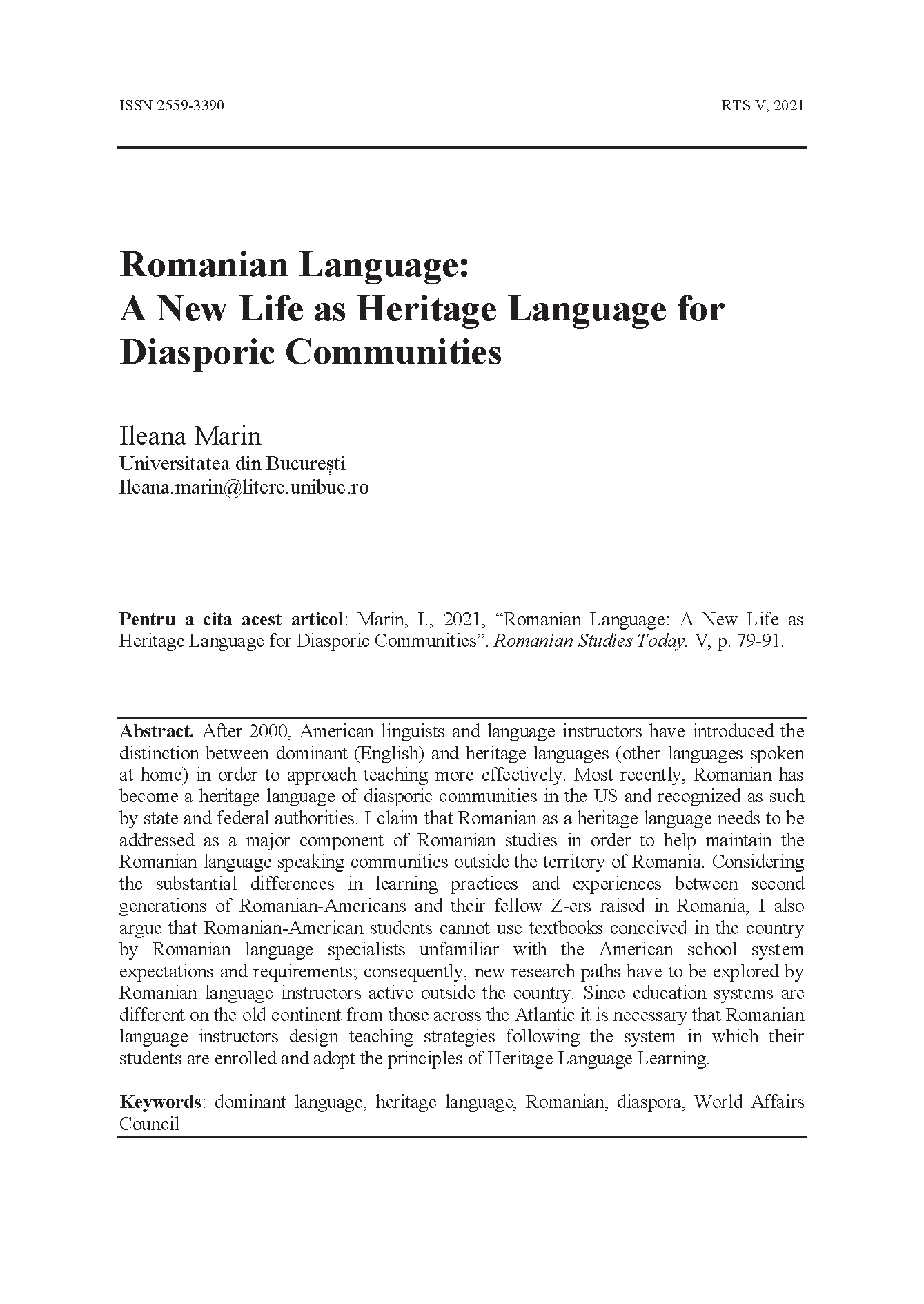Romanian Language: A New Life as Heritage Language for Diasporic Communities
DOI:
https://doi.org/10.62229/rst/5.1/6Cuvinte cheie:
dominant language, heritage language, Romanian, diaspora, World Affairs CouncilRezumat
After 2000, American linguists and language instructors have introduced the distinction between dominant (English) and heritage languages (other languages spoken at home) in order to approach teaching more effectively. Most recently, Romanian has become a heritage language of diasporic communities in the US and recognized as such
by state and federal authorities. I claim that Romanian as a heritage language needs to be addressed as a major component of Romanian studies in order to help maintain the Romanian language speaking communities outside the territory of Romania. Considering the substantial differences in learning practices and experiences between second
generations of Romanian-Americans and their fellow Z-ers raised in Romania, I also argue that Romanian-American students cannot use textbooks conceived in the country by Romanian language specialists unfamiliar with the American school system expectations and requirements; consequently, new research paths have to be explored by
Romanian language instructors active outside the country. Since education systems are different on the old continent from those across the Atlantic it is necessary that Romanian language instructors design teaching strategies following the system in which their students are enrolled and adopt the principles of Heritage Language Learning.




